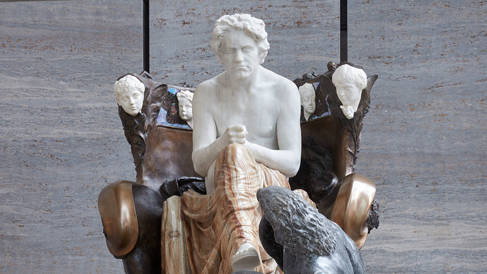The university will receive £94,264 to fund the study that will focus on an improved understanding of the role of art in 1930s Europe and will offer insights into culture, politics and links to contemporary issues of far-right nationalist movements.
Bringing together literary and musicological analysis, the project radically proposes that Eliot's interest in Beethoven was not only a response to the 1927 Beethoven centenary, but a powerful critique of Nazi cultural ideology and rhetoric during the inter-war years.
As a literary scholar, Dr Virkar has explored the intersections between literature and the arts extensively. As we approach the 2027 bicentenary, marking 200 years from Beethoven’s death, this timely research project – T. S. Eliot and Beethoven: Aesthetics, Music and Politics 1870-1945 – will investigate how Eliot’s poetic series 'Four Quartets' (1942) and 'Coriolan' (1932) explore the myth and meaning of Beethoven. A particular focus is the ‘heroic’ idea of the composer, as seen not only in Beethoven’s music and in musical discourse, but also in art and visual culture.

Klinger, Max. ‘Beethoven’ (Vienna, 1902, polychrome sculpture in marble, bronze and ivory, height: 3.10 m) Leipzig, Museum of Fine Arts. Photograph by Alexander/Schmidt/PUNCTUM courtesy of Leipzig Museum of Fine Arts.